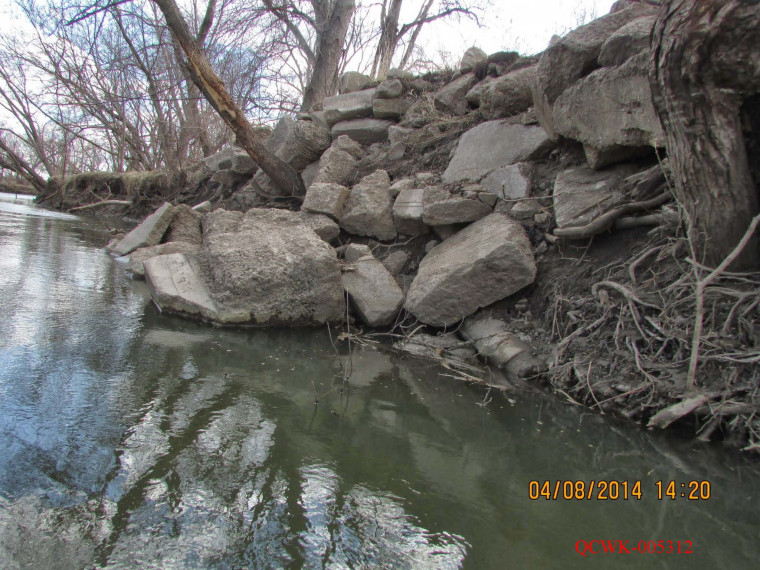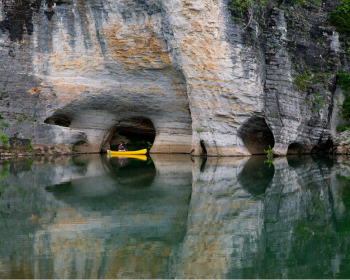Earthrise Victory in Illinois: Concrete Dumping Violated Clean Water Act
Open gallery

In a precedent setting case, United States District Judge Sara Darrow, of the Central District of Illinois, ruled on September 29 that maintenance of an otherwise unpermitted levee is not exempt from the federal Clean Water Act.
Judge Darrow found that defendants, Ballegeer Excavation, Ballegeer Trucking, and David and Francis Ballegeer violated the Clean Water Act by dumping tons of concrete waste into and on the banks of more than a mile of the Green River in Illinois without a permit. The Green River is a major tributary of the Rock River in the Upper Mississippi River Watershed near the Quad Cities. The concrete waste was generated from the defendants’ trucking and excavation businesses. In some places the chunks of concrete and rebar were piled more than five feet deep.
The plaintiffs, Quad Cities Waterkeeper and Prairie Rivers Network, were represented by Earthrise attorneys Kevin Cassidy and Lia Comerford, and Illinois attorney Albert Ettinger. “No other case that we are aware of has interpreted this particular exemption of the Clean Water Act in the context of levee maintenance,” Cassidy said. “Our clients have never been against necessary and appropriate maintenance of levees, especially to prevent flooding, but if such maintenance results in discharges into waters of the United States, it must be done in compliance with the Clean Water Act. We look forward to the next stage of litigation, which will address how the defendants will have to restore this important public resource and hopefully return it to a condition the people of Illinois can be proud of.”
The defense argued the filling activities at issue are exempt from the Clean Water Act under the Act’s so-called maintenance exemption. The local Corps office said that it had inspected the construction activities undertaken by the Ballegeers and found no violations. The court rejected both the defendants’ claims and the position of the local Corps office that the massive concrete dump constituted the type of maintenance Congress intended to be exempt from Clean Water Act permitting requirements.
The Green River is a popular recreation site and home to several species of fresh water mussels, including at least one species listed as threatened by the state of Illinois. Earlier in the litigation, Judge Darrow rejected defendants’ claims that, because they owned property on both sides of the river, they could exclude boaters from recreating there. That ruling set important precedent for river access rights in Illinois.
“It’s has been an incredible fight, but this decision makes clear that no one is above the law and that we are past the time when you can dump concrete on over a mile of a beautiful river and get away with it,” said Art Norris, Executive Director of Quad Cities Waterkeeper.
“This case has taken several years and a huge amount of resources to stop the destructive actions of some rogue players. It’s unfortunate the state of Illinois and the Army Corps of Engineers did not step in and enforce our pollution laws,” said Kim Knowles with Prairie Rivers Network. “We’re hopeful the ruling will deter other would be polluters while encouraging our public agencies to uphold the Clean Water Act. We’ll also be glad to see the Green River restored.”
Earthrise Law Center is located in Wood Hall on the Law Campus.
MSC: 51
email earthrise@lclark.edu
voice (503) 768-6736
fax (503) 768-6642
Allison LaPlante
Earthrise Law Center
Lewis & Clark Law School
10101 S. Terwilliger Boulevard MSC 51
Portland OR 97219


